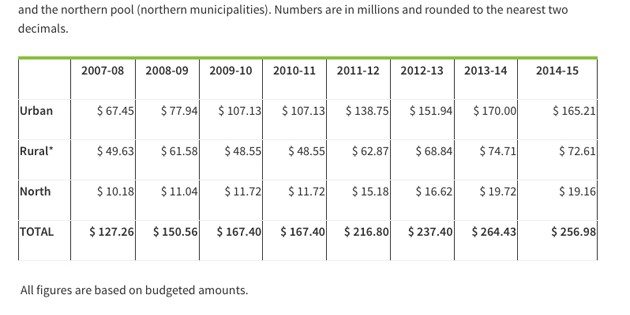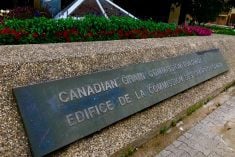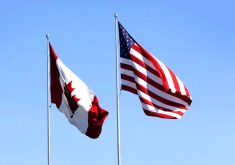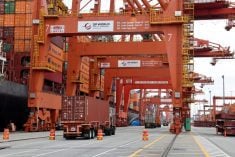Saskatchewan’s rural municipalities learned today that “everything is on the table” as the province contemplates deep budget cuts due to declining oil revenues.
That includes the Municipal Revenue Sharing program that distributes a portion of provincial sales tax (PST) revenue amongst urban and rural municipalities and northern communities.
Saskatchewan premier Brad Wall told delegates attending the Saskatchewan Association of Rural Municipalities’ 2015 annual convention that oil prices are half what they were when he spoke to them a year ago.
“The impact is between $600 (million) and $800 million less in revenue to the government, (which is) between a five and seven percent reduction in revenue for Saskatchewan,” he said.
“A revenue decline of this kind won’t bring the operations of government to a halt, but it is serious and it needs to be addressed and it will be addressed.”
Wall is committed to releasing a balanced budget on March 18, and that means cuts are coming to government programs.
“Every expenditure must be reviewed, and that includes revenue sharing,” he said.
Municipalities receive one percentage point of the five percent PST collected by the province, which amounts to $257 million in 2014-15.
Read Also
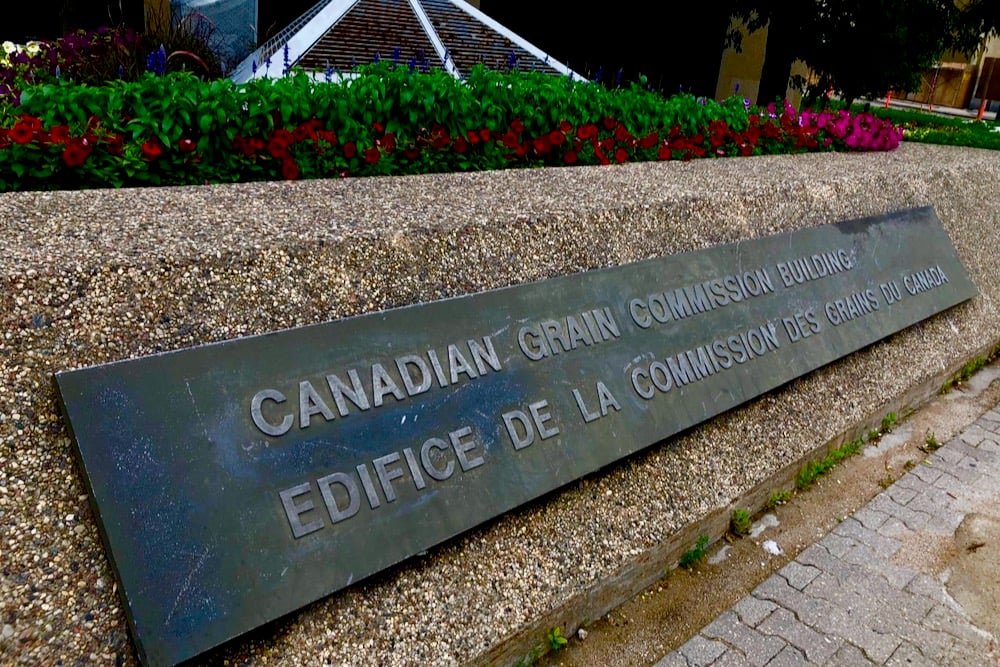
Canadian Grain Commission to use surplus to avoid fee increases
The Canadian Grain Commission will continue to use its surplus to cover budget shortfalls and avoid potential fee increases until 2028, the federal agency announced Monday, Oct. 27.
Rural municipalities will receive $72.6 million, or 28 percent, of the total with the remainder going to urban municipalities and northern communities.
Wall said the revenue sharing program was introduced to help municipalities share in Saskatchewan’s prosperity.
However, since the program was rolled out in 2007-08, revenue sharing dollars have increased by more than 100 percent, while there has been a more modest 20 percent hike in money pouring into provincial coffers.
“There is a bit of a disconnect there,” Wall told SARM delegates.
The premier later told reporters that one thing his government is considering is freezing revenue sharing dollars, which are at record levels.
But he also noted he may not touch the program at all because that could result in a hike in municipal taxes or reduced infrastructure spending by RMs.
“It’s the last resort for us as we look at the budget. It would be the very last resort,” he said.
Wall said infrastructure spending will remain intact despite the massive reduction in oil revenue.
SARM acting-president Ray Orb is a little nervous about what might happen to revenue sharing in the upcoming budget, but he was comforted by what he heard from the premier in his speech.
“I didn’t get a sense there would be a big cut to it,” he said.
Orb said rural municipalities depend on that money for infrastructure investment, especially for communities where there has been extensive spring flooding.
He noted that all of the province’s resource development occurs in rural areas and if those communities have less money to spend on infrastructure projects, there will be a slowdown in the economy.
“I don’t think the province wants that,” said Orb.
Contact sean.pratt@producer.com
Here are some tweets from Sean Pratt from the SARM meeting.
SARM delegates cast votes at 2015 annual convention in Saskatoon. #westcdnag pic.twitter.com/rjWUyh9B9o
— Sean Pratt (@sean_pratt) March 10, 2015
Sask. Premier Brad Wall introduces his cabinet to SARM delegates at 2015 annual convention. #westcdnag #sarm2015 pic.twitter.com/cstRgjy86H
— Sean Pratt (@sean_pratt) March 11, 2015


